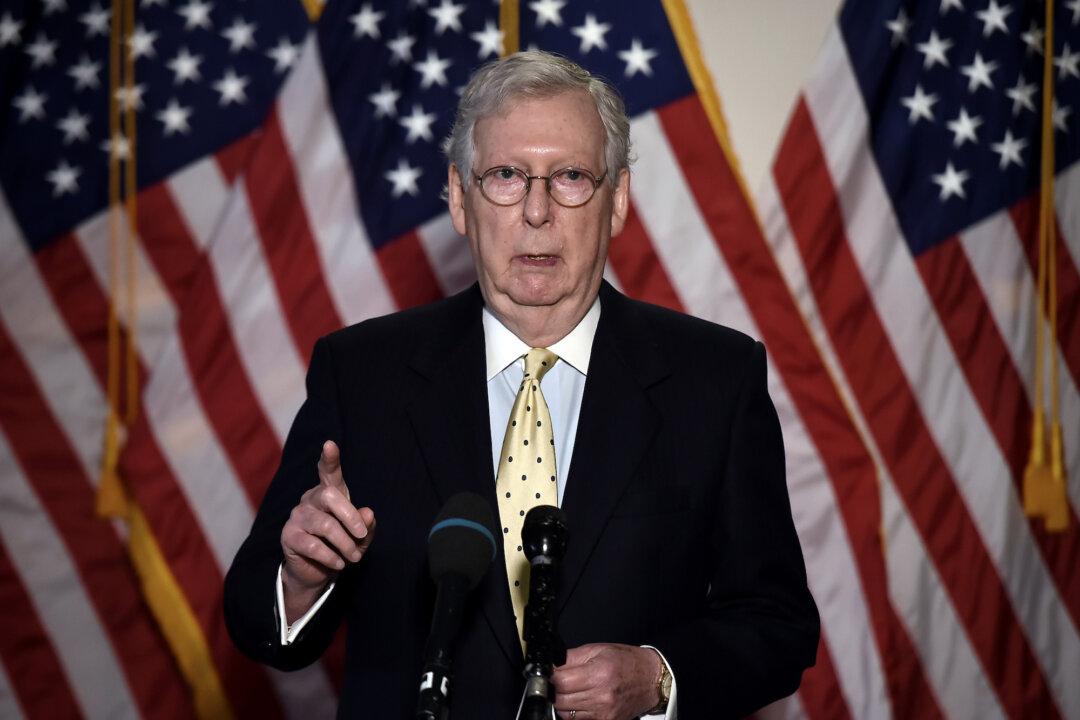Schools that don’t plan to physically reopen, or at least offer some in-person learning in the fall, would lose two-thirds of the relief money set aside for K-12 education under Senate Republicans’ relief bill.
Senate Majority Leader Mitch McConnell (R-Ky.) on July 27 unveiled the much-anticipated HEALS Act, which would provide $70 billion to K-12 public and private schools, as well as $5 billion in funds for governors to spend on K-12 and higher education.





